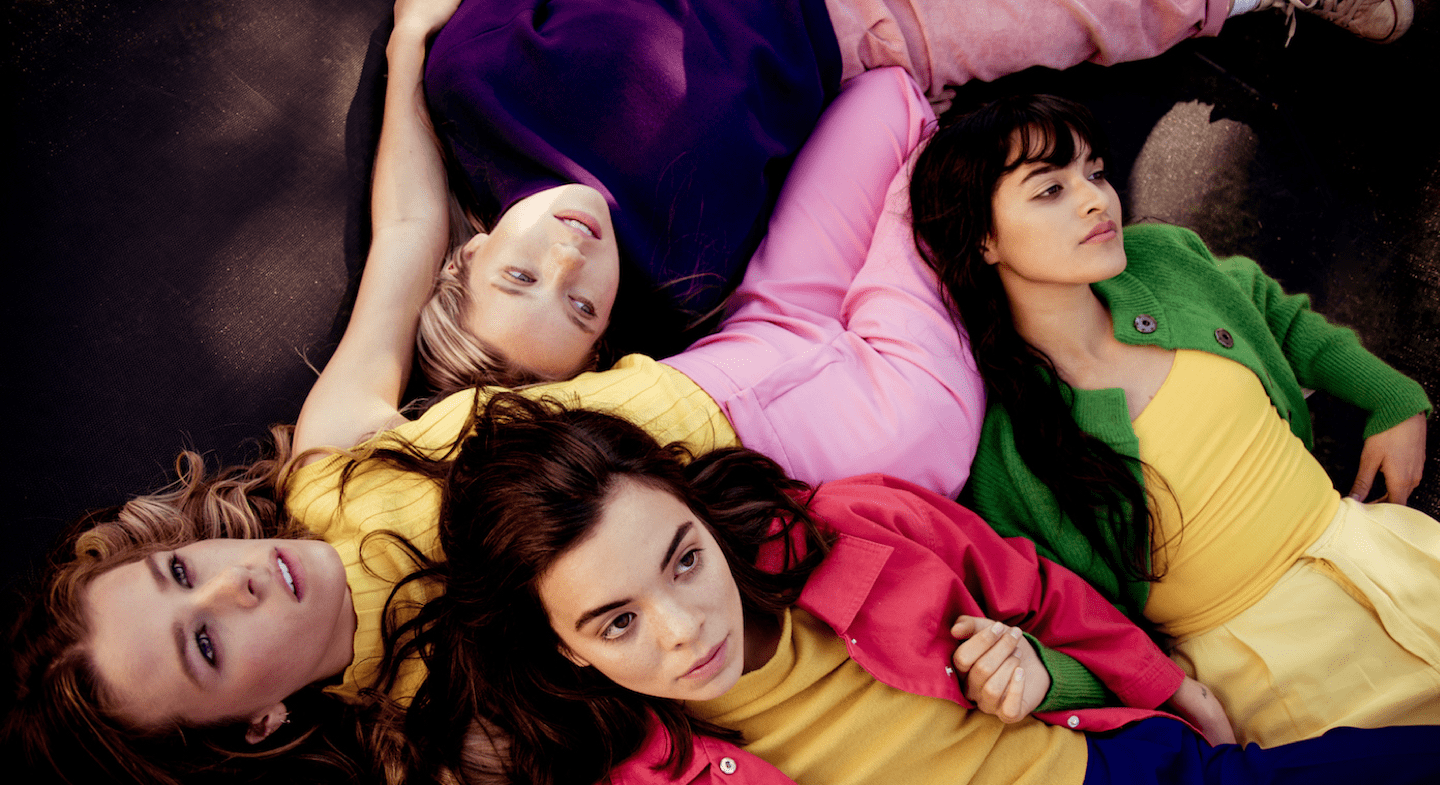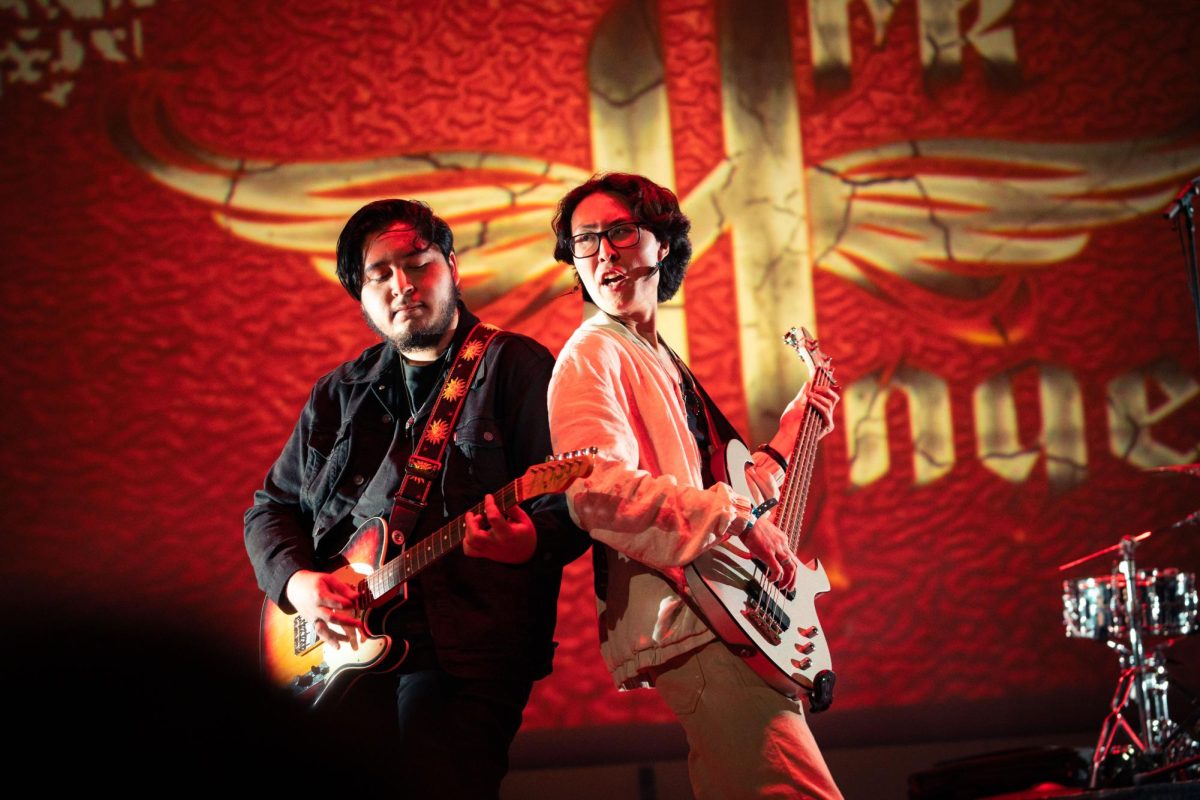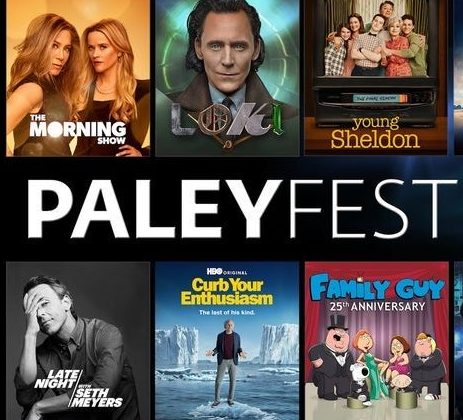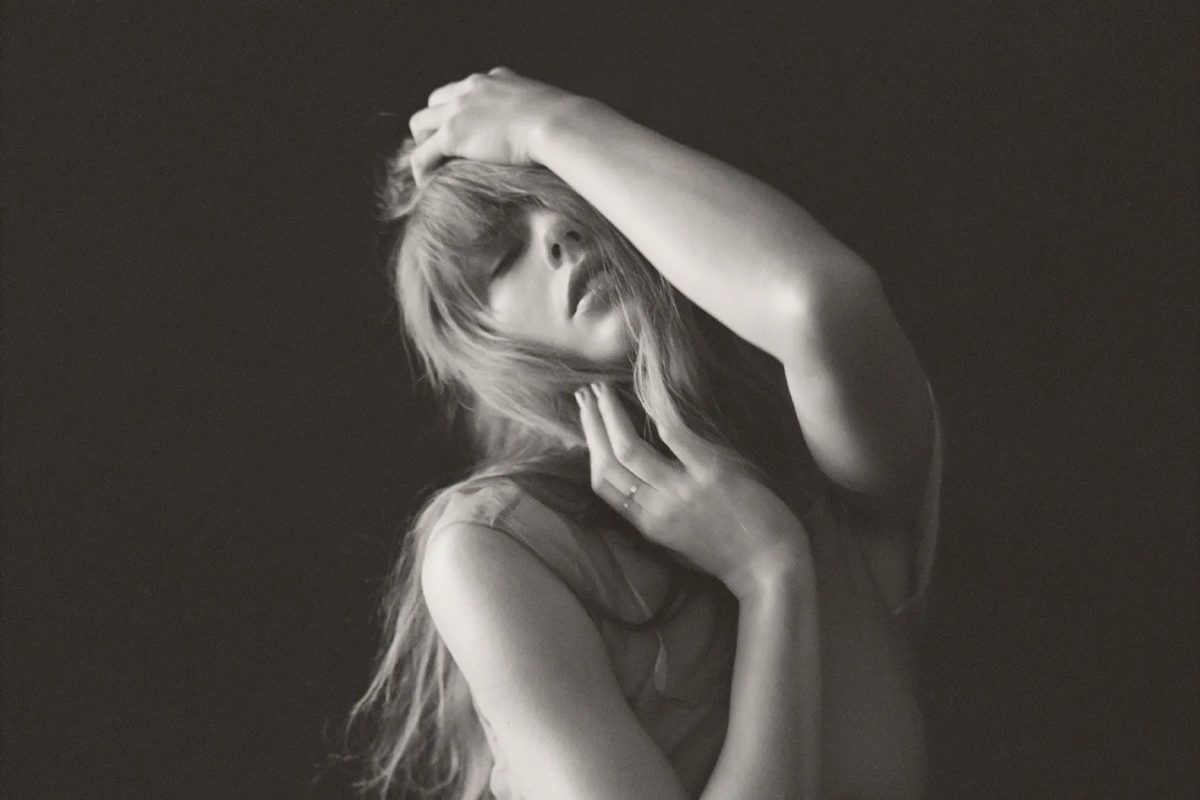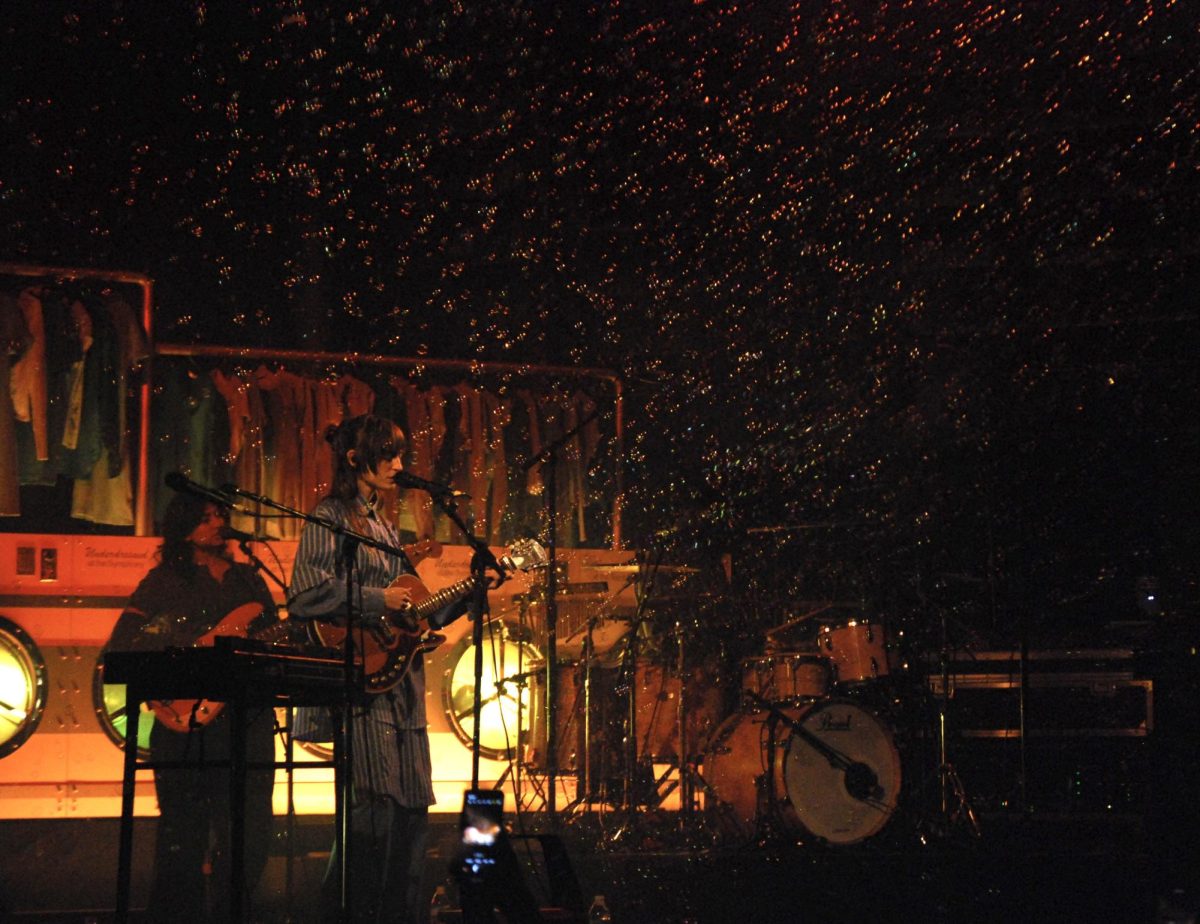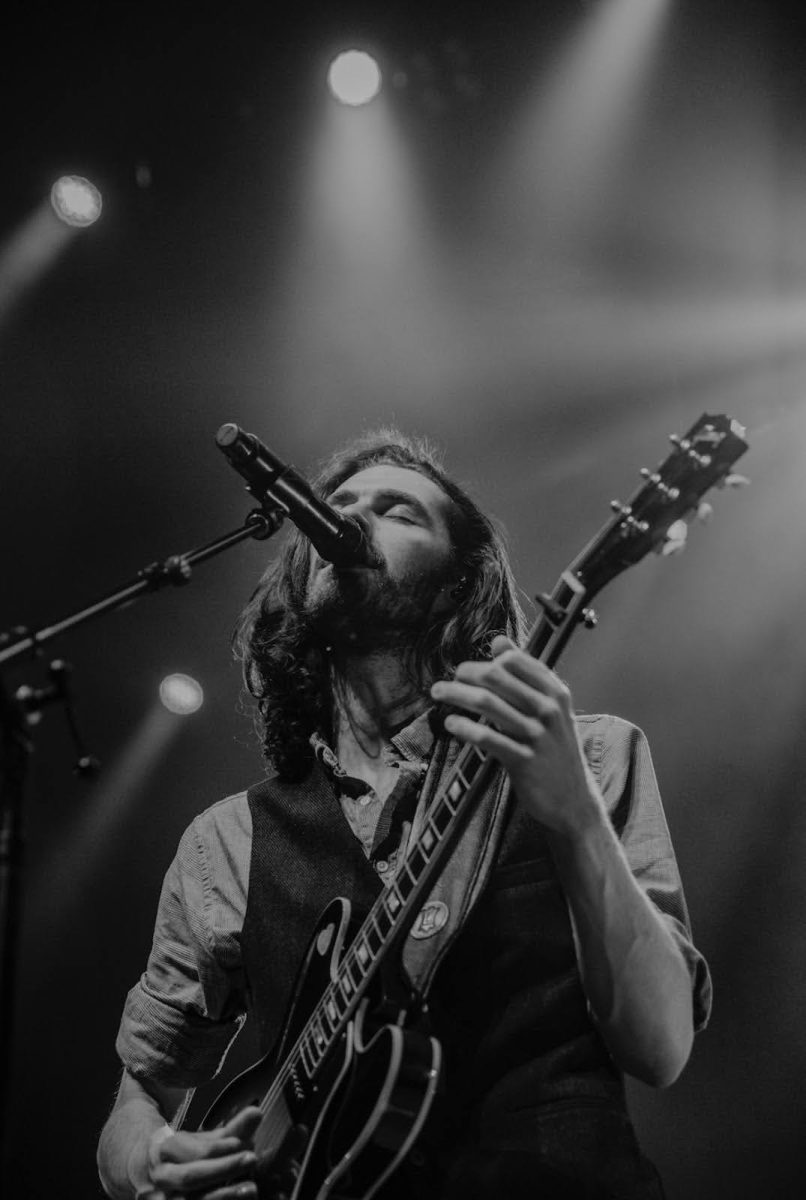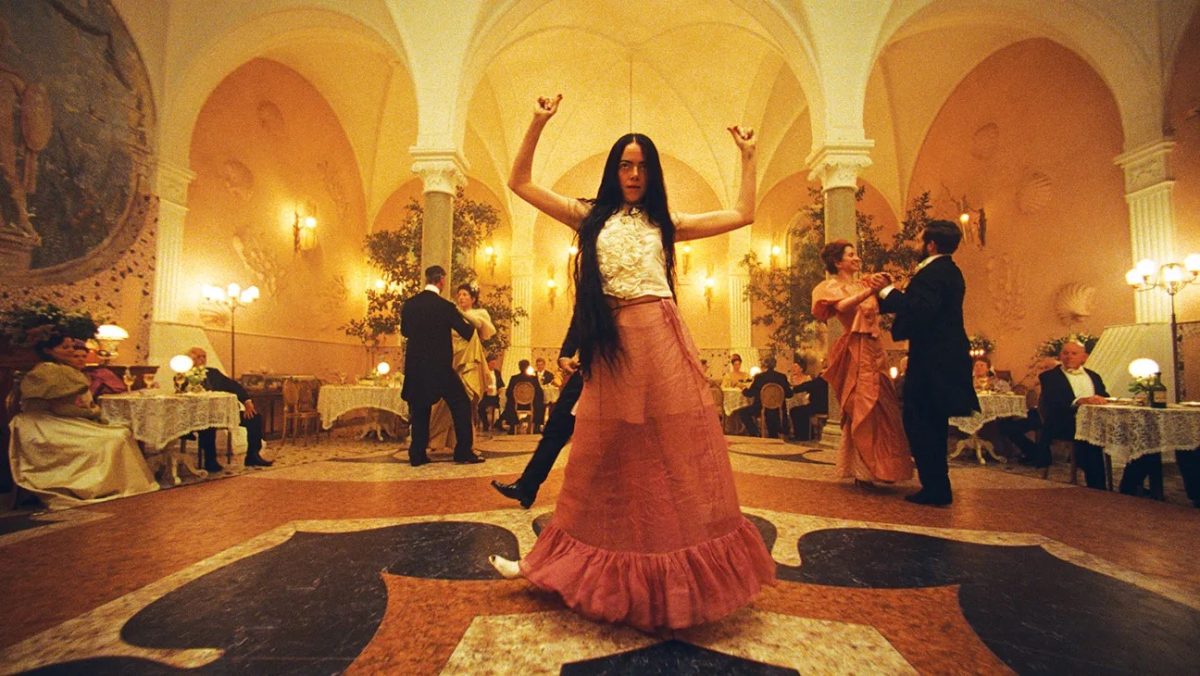Guardian: Go ahead ahead and introduce yourselves, maybe with one fun fact each. I understand that you guys formed back in middle school. How has Provo, Utah influenced the band and its music?
Cristal: Yeah, elementary school, when we were little kids — fifth grade, around eight and 10—single digits.
Alisa: We’re all organic, non-GMO, United States Department of Agriculture approved!
Cristal: It’s very interesting because we always talk about this. We’re all from the same hometown, so any time people say, “Oh, where are you guys from?” we respond, “Oh, not just us as a band, but [we] as people are from Utah.” As we’ve met other bands, all the members are from different cities because they meet each other through college or they meet each other as they get [into] their 20s. I’ve never realized it’s actually quite unique that we’re all from the same city because we’ve grown up together and have been in the band so long. I don’t think we’ve met another band that grew up together like we did.
Could you tell me a little bit more about how you guys got together?
Cristal: So Alisa and I being sisters, we had an older brother that was in a lot of punk and metal bands — he’s a great guitar player, and we were always looking at him thinking, “oh, we want to be in a band too.” We always talk about how we don’t totally know where it came from.
Alisa: We think it also came from our mom and dad –– they’re very musical, not in the sense that they play instruments, but they’re always singing. They’re both really good singers and they’re always playing music –– our house was always just filled with jams.
Cristal: Yeah, so we started when we were little kids. Alisa asked for a drum set from my mom, and her best friend had this drum set that her son didn’t play so she just gave it to us. She started playing, then I started stealing my brother’s guitars and tried to teach myself how to write music. We started just jamming together as little kids naturally –– we just did it because we wanted to. We’ve known McKenna since kindergarten; her mom was a first grade teacher at our elementary school. So we knew each other since we were super young, but we didn’t get close until we were in fifth grade probably 10 or 11.
McKenna: We were just hanging out a ton, and I remember that you guys just wanted to start a band.
Cristal: We were just literally best friends; we were spending all of our time together. I remember we were on our home phones — which seems like an ancient memory at this point — calling each other and chatting on the phone. I said, Ken, if anyone is going to be in our band, it has got to be the homies, so you have to learn how to play bass! Then she was like, “what’s a bass?” Then we started just teaching each other music. So it was us three, and we started off calling ourselves “The Blue Aces.” We played together for three or four years then Ken and Katie met each other in middle school.
Katie: I grew up playing the guitar, and my brothers were also in bands. I was kind of in a familiar situation where I was forcing people to play with me because I wanted to be in a band so bad. So I would force my friends to play, and we would make bands and stuff. I met Kenna, and my friend group and her friend group — which was these guys — merged together and we were hanging out all the time and got really close. I had heard about their band, and thought, “that’s really cool!” One day they all came over to my house, and I asked “do you guys want to come see my rehearsal space downstairs that me and my brothers had built up?” Then they responded, “What? You play guitar?” I was just stoked to meet people who actually cared. Because I had cared about it, but none of my friends ever cared about it. When I finally met people who actually cared about playing music, I thought, “Wait! This is awesome.”
Cristal: I think it was also a cherry on top that she was a girl. We thought, “That’s awesome that we’ll get to keep it all girls!” because we felt like we had this cool thing going, and it just kind of worked out. We were The Blue Aces until about three years ago, when we were 18 or 19, then dropped the “Blue.” We’ve been a band now for about a decade.
As your following grows, how do you hope to use your influence to change or promote certain aspects or ideas? Whether it be in the industry or in life, how do you hope to use your influence among people?
Katie: I think overall we like using our platform for overall positivity and empowerment. I feel like there are a lot of artists, especially in this generation, where there’s a lot of negativity, and I think it’s cool in a sense to be authentic and raw with hard things, but I think it’s important to also be really positive, and to remind people of—
Cristal: Good vibes, you know? That sounds so cliche and silly, but nothing is really the end of the world. Female empowerment is a huge one for us. We still get all the time, “Oh my gosh, you’re an all-female band; we never see all-female bands, especially in the alternative world.” We’re surrounded by men constantly, and we definitely get silly comments sometimes such as, “I can’t believe it, you’re a girl and you can play?” I get that they’re trying to compliment us, but that’s not a compliment. I think it’s more that we try to live by example, by being on stages, by touring, by fully turning this into a career, and showcasing our friendship and what we do, and try to empower other girls to want to get on stages, to want to play drums, guitar, bass, sing, whatever it is.
McKenna: You can just be in the music industry. We’ve had so many girls [who] want to be tour managers or working photography — male-dominated things. I love it because it can be anything; we want to inspire people to do anything that might be scary or hard. I remember once a girl saying, “I’ve been having such a rut in college and not feeling like I know what to do, but I felt so good after your guys’ concert — you inspired me.” I think that’s cool being an overall help to anyone, to just feel empowered to do whatever they want to do.
Katie: Female empowerment is so important to us, and it’s also really important to us that people know that we’re just four people playing music. Going into a soundcheck or a show, when we work with guys who maybe sometimes question whether we know what we’re doing, we always leave having changed their mind, and hopefully they see other women after that as equals, and that it doesn’t matter if you’re a male or female. We’re all just musicians — we’re all playing and that’s how it should be; it shouldn’t matter.
This interview has been edited and condensed for clarity.


